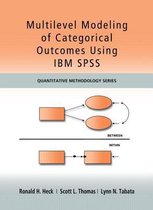Handbook of Diagnostic Classification Models Modèles et modèles Extensions, Applications, Logiciel
- en
- Couverture rigide
- 9783030055837
- 24 octobre 2019
- 656 pages
Résumé
This handbook provides an overview of major developments around diagnostic classification models (DCMs) with regard to modeling, estimation, model checking, scoring, and applications. It brings together not only the current state of the art, but also the theoretical background and models developed for diagnostic classification. The handbook also offers applications and special topics and practical guidelines how to plan and conduct research studies with the help of DCMs. Commonly used models in educational measurement and psychometrics typically assume a single latent trait or at best a small number of latent variables that are aimed at describing individual differences in observed behavior. While this allows simple rankings of test takers along one or a few dimensions, it does not provide a detailed picture of strengths and weaknesses when assessing complex cognitive skills. DCMs, on the other hand, allow the evaluation of test taker performance relative to a potentially large number of skill domains. Most diagnostic models provide a binary mastery/non-mastery classification for each of the assumed test taker attributes representing these skill domains. Attribute profiles can be used for formative decisions as well as for summative purposes, for example in a multiple cut-off procedure that requires mastery on at least a certain subset of skills. The number of DCMs discussed in the literature and applied to a variety of assessment data has been increasing over the past decades, and their appeal to researchers and practitioners alike continues to grow. These models have been used in English language assessment, international large scale assessments, and for feedback for practice exams in preparation of college admission testing, just to name a few. Nowadays, technology-based assessments provide increasingly rich data on a multitude of skills and allow collection of data with respect to multiple types of behaviors. Diagnostic models can be understood as an ideal match for these types of data collections to provide more in-depth information about test taker skills and behavioral tendencies.
Spécifications produit
Nous n'avons trouvé aucune spécification pour votre recherche '{SEARCH}'.
Contenu
- Langue
- en
- Binding
- Couverture rigide
- Date de sortie initiale
- 24 octobre 2019
- Nombre de pages
- 656
- Illustrations
- Non
Personnes impliquées
- Rédacteur en chef
- Matthias Von Davier
- Deuxième rédacteur
- Young-Sun Lee
- Editeur principal
- Springer Nature Switzerland AG
Autres spécifications
- Hauteur de l'emballage
- 37 mm
- Largeur d'emballage
- 155 mm
- Largeur du produit
- 155 mm
- Livre d‘étude
- Oui
- Longueur d'emballage
- 235 mm
- Longueur du produit
- 235 mm
- Poids de l'emballage
- 1166 g
- Police de caractères extra large
- Non
- Édition
- 1
EAN
- EAN
- 9783030055837
Vous trouverez cet article :
- Catégories
- Livre, ebook ou livre audio ?
- Livre
- Disponibilité
- Disponible à l'adresse suivante
- Langue
- Anglais
Choisissez la version souhaitée
Binding
: Couverture rigide
Informations sur les prix et commande
Le prix de ce produit est de 208 euros et 99 cents.
2 - 3 semaines
Vendu par bol
- Livraison comprise avec bol
- Retrait possible dans un point-relais bol
- 30 jours de réflexion et retour gratuit
- Service client 24h/24
Signaler cet article
Vous souhaitez signaler un contenu illégal à propos cet article:
- Je souhaite faire un signalement en tant que client.
- Je veux faire un signalement en tant qu'autorité ou personne de confiance.
- Je veux faire un signalement en tant que propriétaire de partenaire
- Je veux faire un signalement en tant que propriétaire de marque
Vous n'êtes pas un client, une autorité, personne de confiance, propriétaire de marque ou un partenaire ? Dans ce cas, utilisez le bouton ci-dessous pour effectuer un signalement.


